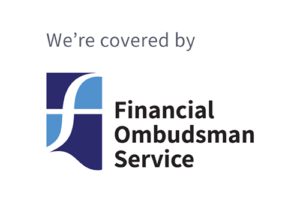Equity Release glossary
Equity Release is the process of turning your home’s equity into cash that you can spend as you choose.
What is an unsecured personal loan?
An unsecured personal loan doesn’t require you to put any collateral down and is usually given to people with high credit scores.
What is a secured personal loan?
A secured personal loan is an alternative to an unsecured personal loan. A secure personal loan uses an asset such as your house or car as collateral. If your credit isn’t good enough for an unsecured personal loan, a secured personal loan may be a better option to meet short term financing needs.
What is a home reversion plan?
A home reversion plan allows you to sell all or part of your home at less than the market value in return for a cash lump sum, a regular income or both. Your home, or the part of it you sell, typically 20% to 60%, now belongs to the lender. However, you are allowed to carry on living in it until you die or move out, paying no rent.
What is downsizing?
Downsizing is the process of relocating to a smaller home. You may be considering this step for reasons such as improving your finances, lowering your costs, or relocating to a more appropriate second home.
Who is the Equity Release Council?
The Equity Release Council (ERC) is a voluntary trade body for the equity release sector. It represents over 400 members including providers, qualified financial advisers, solicitors, surveyors and other industry professionals, and seeks to make Equity Release a mainstream product for the UK.
Who are solicitors?
The solicitor is a person who has been put in place to make sure that the customer, who is receiving an Equity Release service, is getting truly independent advice and conflicts of interest are avoided. The Equity Release Council made it a requirement that the customer and the equity release provider have separate legal representation from a solicitor.
Who is a provider?
A provider is a company that provides a lifetime mortgage or home reversion plan.
What is an associate?
An associate is a broad term that covers companies with a vested interest in working with the other organisations. These other organisations can include surveyors, funders, network, information plus support and introducers.
What is an affiliate member?
Affiliate members are companies with an interest in the UK Equity Release market, for example, Equitable Bank, a Canadian challenger bank (new bank that challenges the longer established banks).
What is remortgaging?
Remortgaging involves renegotiating your existing mortgage with your current, or a different, mortgage lender (sometimes through mortgage brokers) to increase your level of borrowing. It usually occurs when your fixed period comes to an end and you get a deal with more favourable interest rates and monthly payments.
What is a lifetime mortgage?
A lifetime mortgage is a loan secured against your home, provided it is your primary residence, that you retain ownership of. When the last borrower dies or enters long-term care, the house is sold and the proceeds are used to pay off the loan.
What is a lump-sum loan?
A lump-sum loan is the most basic type of lifetime mortgage, in which the interest is ‘rolled up’ over the entire duration. You don’t have to pay anything for the remainder of your life, although interest accumulates year after year until you die (or even move into the residential care home).
What is a drawdown lifetime mortgage?
A drawdown lifetime mortgage is a more flexible mortgage, in which you take up a smaller loan at the start and then draw down additional funds as needed.
What is an enhanced lifetime mortgage?
Some providers may offer those with shorter-than-average life expectancies more money. These types of lifetime mortgages are available from a wide range of providers.
What does a deprivation of assets mean?
Deprivation of assets means that you have intentionally offloaded your assets, in order to reduce the amount you contribute towards the cost of care services provided by the local authority.
What is a home reversion plan?
A home reversion plan is a type of Equity Release that allows users to access some of the money they have tied up in their home, later known as house equity. You have to sell either the entire house or portion of your home to a supplier (for example, 50% of its worth).
What is a beneficiary?
A beneficiary is a person that receives benefits, such as money, from a benefactor.
What is a solicitor?
A solicitor is a legal professional who provides legal advice.
What is a lump sum?
A lump sum is money that is released all at once.
What is an emergency fund?
An emergency fund is money that is in place to pay for unforeseeable financial payments.
What is a leaseholder?
A leaseholder is a variation of property ownership where you only have temporary ownership of your home. The lessee or tenant holds the rest of the ownership.
What is a repayment of interest?
A repayment of interest is when a borrower is allowed to pay off some or even all of the interest accrued during the loan’s term. This is another way to cut costs.
What is an early repayment penalty?
The majority of equity release plans do not allow you to pay down the loan and instead rely on interest accruing throughout the loan. If you wish to stop the contract early, the provider will charge you an early repayment. Rates are frequently based on current government bond rates.
What are interest only mortgages?
Interest only mortgages enable you to get a mortgage while you’re still working, and many of them only need payments when the homeowner passes away or when the property is to be sold. You just need to pay off the loan’s interest each month, not the loan’s principal.
Who is Pure Retirement?
Pure Retirement is a Leeds based mortgage lender. In 2022 they were awarded the Best Provider For Products by The Equity Release Awards. Pure retirement prides itself on delivering innovative retirement solutions.
Who are more2life?
more2life are one of the biggest lifetime mortgage leaders in the UK. They have a large focus upon Equity Release.
Who are Aviva?
Aviva are an insurance company based in England. Over 15.5 million people from the UK have chosen Aviva to protect their belongings and help plan their future.
What is a drawdown reserve?
A drawdown Lifetime Mortgage allows you to release an initial sum of money and create a reserve account of further funds that can be accessed at a later date. Interest isn’t charged on the reserve until the money is released.
What is downsizing protection?
What are interest repayments?
What are loan repayments?
More than three-fifths of the products provided by members of the Equity Release Council allow you to make partial repayments on the loan itself without incurring an early repayment charge.
What are shared appreciation mortgages (SAMs)?
SAMs mortgages were very short-lived, but they had a huge impact on Equity Release. In particular, the reputation of Equity Release. SAMs mortgages seemed too good to be true, and that’s because they were. With this type of mortgage, you could release up to 25% of your home’s value, and get this in a lump sum.
What is capital gains tax?
Capital gains tax is a tax that you have to pay when selling a property that’s not your home. On residential property, this is charged at 18% / 28% on the amount above the Capital Gains Tax annual exempt amount (£12,300 2021/22 tax year) depending on your other taxable incomes in the year that the property is sold.
What is annual equivalent rate (AER)?
Annual equivalent rate gives us the rate of interest added over one year.
What is the monthly equivalent rate (MER)?
What are fixed Equity Release rates?
Fixed Equity Release interest rates are set at the outset and do not need to be renewed; they are fixed for life, regardless of how long the mortgage runs.
What is an Equity Release calculator?
An Equity Release calculator allows you to see how much equity you could release from your home.
What is a financial consultant?
A financial consultant offers advice to clients, which helps you financially. Financial consultants will offer financial planning, help you invest your money and assistance with insurance decisions.
What is SIPP?
A SIPP (self-invested personal pension) is a type of personal pension that allows you to build up a retirement pot through savings and investments. Because SIPPs offer a wide range of investment opportunities and tax benefits, you will need to know the tax rules for your individual circumstance to know if you need to pay tax on a SIPP.
What is a tapered annual allowance?
Tapered annual allowance is a limit that controls the amount of tax relief high earners can claim on their pension savings in 2021-2022 by reducing their annual allowance from £40,000 to £4,000 on a sliding scale.
What is threshold income?
Threshold income is what you are earning from your job, property, investments and other sources of income.
What is a leasehold agreement?
Who are Legal & General?
Legal & General are one of the largest insurance insurance and assets management groups within Europe. They were establish in 1836 and have gone onto win awards for heir service, such as the Later Life Lender of the year in 2021.
Who are LV=?
LV= are an insurance company that was founded in 1843 with over 1.28 million customers. They offer services such as life insurance, income protection, investments, and retirement income solutions. LV= outsources their equity release service to Simply Lifetime Mortgages Limited.
Who are Sunlife?
Sunlife are a UK based financial services company that aims to make later life easier by offering a high standard of financial services. They offer services such as insurance, investments, financial advice, asset management and Equity Release plans.
What is accrued interest?
Accrued interest is the amount of interest that has been accumulated over a certain period of time.
What is compounding interest?
Compounding interest is the increasing interest on a loan or deposit.
Who are the Financial Ombudsman?
The Financial Ombudsman are a service that deals with complaints between consumers and financial service businesses. They are an impartial entity that helps to keep the relationship between the consumer and business fair.
What are early repayment charges?
Early repayment charges are a fee that you could possibly have to pay if you are wishing to reduce the amount that you have borrowed. There are two types of early repayment charges: fixed rate early repayment charges and variable rate early repayment charges
What is a significant life event exemption?
Significant life event exemption is a benefit for all joint lifetime mortgages.
What is a credit check?
A credit check is a process that is carried out to learn more about your financial behaviour. This process involves going through your credit reports from previous financial affairs.
What is inheritance tax?
Inheritance tax is a tax that is paid when a person receives money from an inheritance. The standard inheritance tax rate is 40%, although this tax rate is only paid on the amount over the threshold.
What is pension credit?
Pension credit is available to anyone who are over state pension age and need help financially. Pension credit increases your income to help cover your costs.
What is budgeting?
Budgeting is a method that helps to decrease your expenditure. The process of budgeting includes reducing your costs. For example a way to budget may be to opt for cheaper brands when shopping.
Why can’t I get Equity Release before age 55?
Equity release is only available to people over aged 55, insurance companies do this because the amount you owe is normally paid back upon your death.


